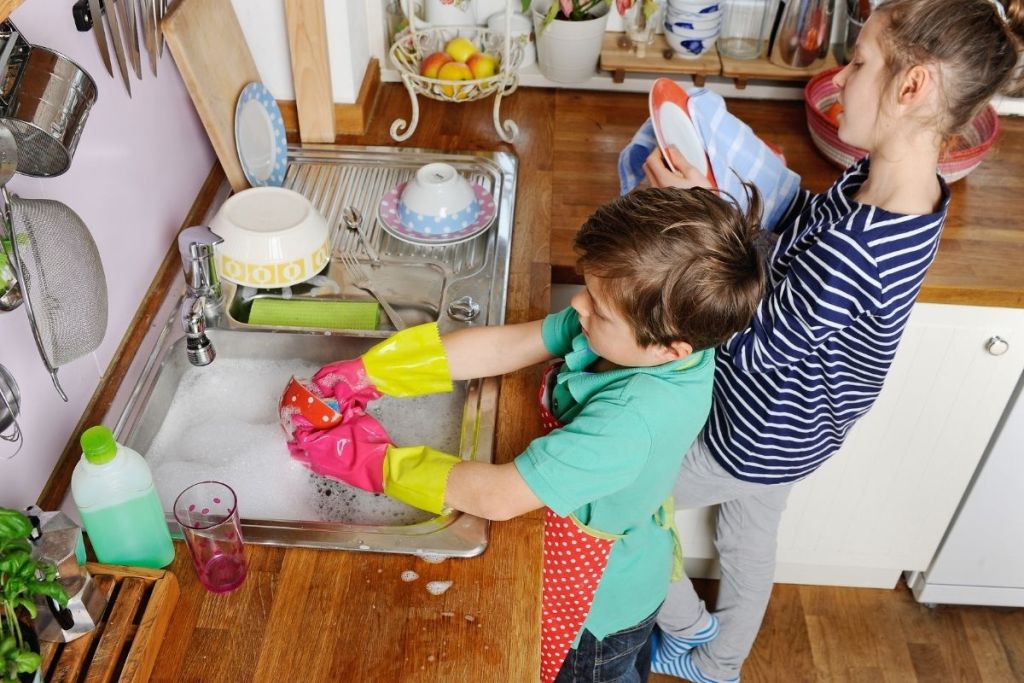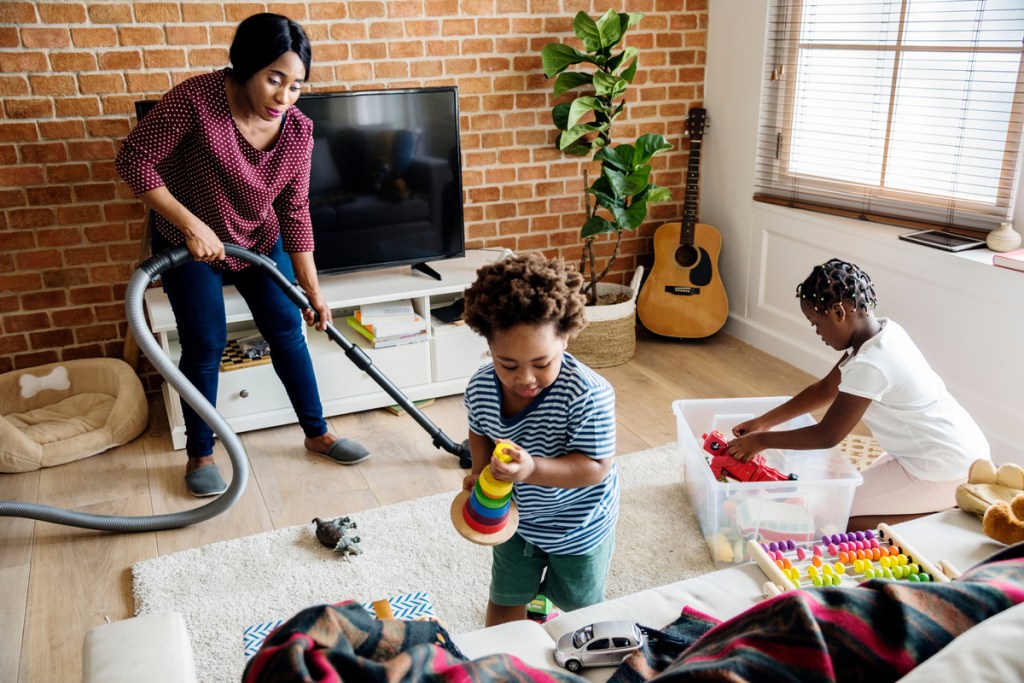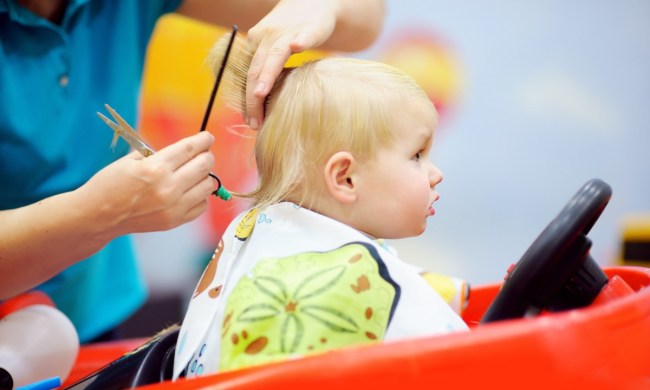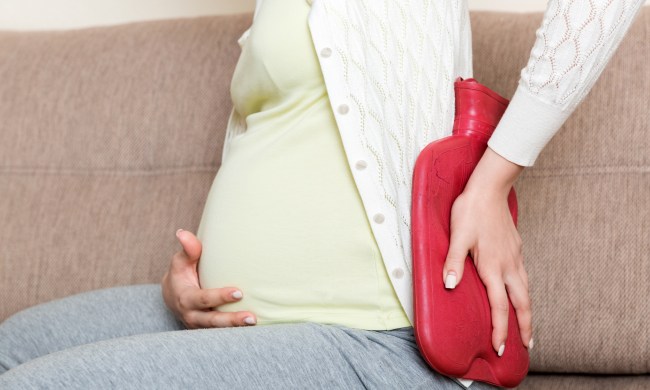You’ve made it! Your child is finally old enough to help out around the house, and the days of caring for them in diapers have faded away. Even if your tyke is still a toddler, it may be time to start introducing them to chores. It turns out there are many benefits to including them in housework, even if they’re not capable of doing it very well yet.
Adding responsibility and ownership to your child’s life through chores and (later) an allowance will help them develop independent skills that will become more and more important as they grow up. The earlier they begin to appreciate the work and money their parents put in to their care, the better chance of them not becoming spoiled. It’s not about guilting them over all you do, but it lets them appreciate what it takes to keep a home going. Before you know it, they’ll be moving out and managing a home of their own, and incrementally preparing them for years will benefit them in the long run.

Why should kids do chores?
There are many ways children benefit from doing chores:
- Learning life skills for their independent futures
- Teaching teamwork within the family
- Building a work ethic
- Screen-free bonding time when done together
- Gaining insight into what parents do
- Giving a chance to give back to parents
- Learning responsibility
- Develops problem-solving skills
- Boosts self-esteem and a sense of pride
Research actually proves the points above. The famous 75-year Grant study by Harvard looked at what childhood factors predicted adult health and well-being, and the No. 1 factor was love. The second? Work ethic. Here’s what Julie Lythcott-Haims had to say about that study in her 2015 TED Talk “How to raise successful kids — without over-parenting”:
“[The study] found that professional success in life, which is what we want for our kids, that professional success in life comes from having done chores as a kid, and the earlier you started, the better; that a roll-up-your-sleeves-and-pitch-in mindset, a mindset that says, ‘There’s some unpleasant work; someone’s got to do it, it might as well be me,’ a mindset that says, ‘I will contribute my effort to the betterment of the whole,’ that that’s what gets you ahead in the workplace.”
Another landmark study also showed that chores not only help with professional success, but with mental health: “The Glueck study data suggested that industriousness in childhood — as indicated by such things as whether the boys had part-time jobs, took on chores, or joined school clubs or sports teams — predicted adult mental health better than any other factor, including family cohesion and warm maternal relationships,” according to Joshua Wolf Shenk for The Atlantic.
Further research even shows starting chores at age three or four can help success in school, better self-care, and success in adulthood. If you ever feel guilty about putting your kids to work, remember the science shows it’s truly for their own good.

What chores should kids do?
Choose age-appropriate chores that will give kids that sense of pitching in they benefit from. At all ages, involve your child in choosing their chores instead of assigning them. This will add to the sense of investment and responsibility they feel.
Preschoolers do best with chores that involve picking up after themselves like cleaning up their toys, making their bed, putting their clothes in the hamper, and putting up their dishes after a meal. In elementary school, these picking-up-after-themselves chores will include putting their lunchbox away when they get home from school and similar tasks. They’ll also become ready for chores that are not just about themselves, like emptying the dishwasher. In middle school, kids can get a chore list that might include raking the lawn and sweeping the floor. Teens can do their own laundry, cook their own meals, and learn more independent life skills through chores.
Want more ideas? Here’s our chore list by age with more information on this topic.
Should kids have an allowance?
Many of the same reasons that chores are beneficial apply to an allowance, as well. Kids learn responsibility and important life skills from money-management practice. They’ll learn budgeting and a sense of independence through having an allowance.
How much should that allowance be? Robin Taub, author of A Parent’s Guide to Raising Money-Smart Kids, told Today’s Parent that she recommends giving an allowance equivalent to one dollar per week for every year of the child’s age (so, $10 per week for a 10-year-old).
Whether you tie chores to allowance as payment for your child’s work is a huge debate in the parenting community, and you can make that call either way. You may want to withhold allowance unless their chores are done but not call it a payment for the chores, just an incentive to make sure they complete what they have to do. Just make sure that work ethic Lythcott-Haims talked about is still getting across.
As long as your child is doing chores and getting an allowance (whether or not they are tied together in any way), they’ll benefit from the responsibility and independence each bring.



